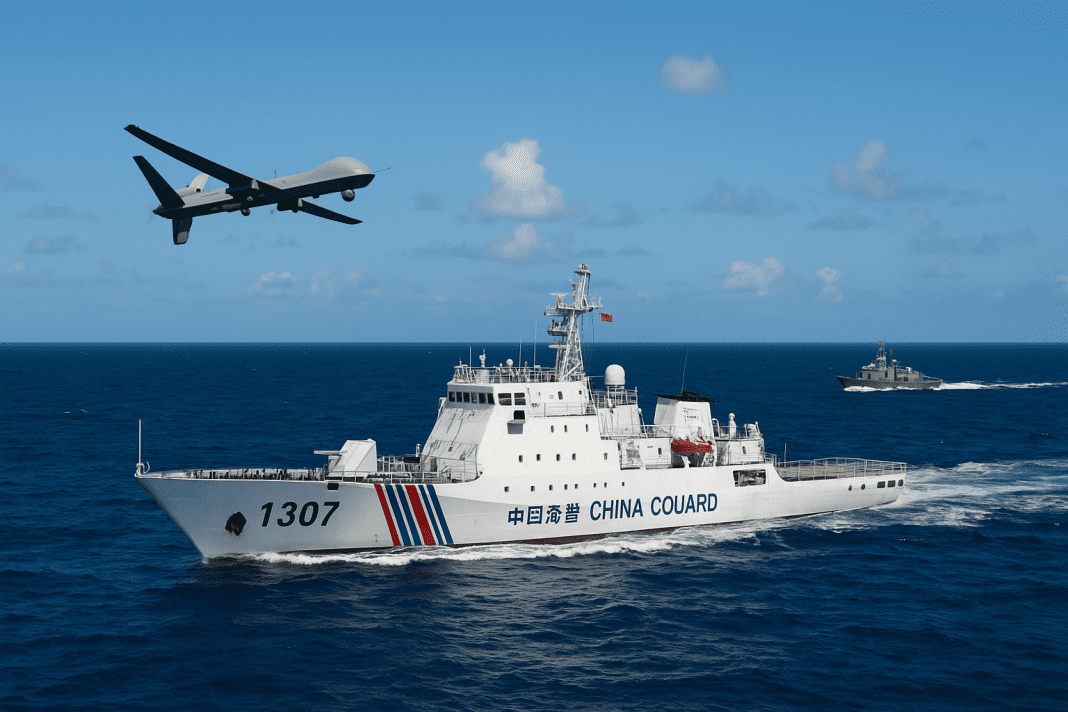A fresh wave of tension has hit the seas between China and Japan after China sent its coast guard ships through the waters around the Senkaku islands.
Rising Tension in Disputed Waters
These islands are controlled by Japan, but China also claims them and calls them the Diaoyu islands. The area has been disputed for years, but the latest activity has caused a bigger stir than usual.
China announced that its coast guard carried out what it called a “rights enforcement patrol” in the region. The message from China was firm, saying that its ships entered what it considers its own territorial waters to protect its national rights and interests. Japan administers the islands, but both sides have long disagreed about who truly owns them.
The situation has grown more serious because this patrol happened right after strong comments made by Japan’s prime minister. She stated that if China ever attacked Taiwan, Japan might have to respond with military action. China reacted angrily to this, demanding that the statement be withdrawn.
U.S. Pentagon greenlights $330M fighter jet boost as Taiwan braces for regional flashpoints
Military Movements Intensify Around Taiwan and Japan
As diplomatic arguments heated up, military activity also increased in the region. Taiwan reported that in just 24 hours, it had spotted 30 Chinese military aircraft and several naval ships operating around the island. One of these ships was believed to be from China’s coast guard. Maps showed drones coming close to Japanese islands near Taiwan, including Yonaguni, which is the closest Japanese island to Taiwan.
Although China has flown military drones through this area before, it doesn’t happen often. What made the situation stand out was the timing — it came only days after the political disagreement involving Taiwan. Taiwan’s defence ministry said that China had been conducting joint combat patrols aimed at disturbing the peace in the surrounding airspace and waters. Taiwan sent its own aircraft and ships to keep watch and respond where needed. Such patrols are reported a few times each month and are part of what Taiwan describes as constant pressure from China.
Japan, too, felt the heat. China’s consul general in Osaka made a strong and hostile remark that triggered a formal protest from Japan. China’s defence ministry added more pressure, claiming that any move by Japan to take action in the Taiwan situation would not succeed.
Beijing Erupts Over Seoul’s Nuclear Submarine Pact with U.S.—“Don’t Play with Fire on Taiwan!”
Diplomatic Fallout and Rising Travel Warnings
As the situation escalated, the friction spread beyond military actions. China summoned Japan’s ambassador for the first time in over two years, signalling how serious the dispute had become. Meanwhile, China advised its citizens to avoid travelling to Japan due to what it called an “unstable security environment.” Following this, several Chinese airlines announced that travellers could change or cancel their flights to Japan at no cost.
The warnings did not stop there. China also urged students to think twice before studying in Japan. This was a significant step, considering that more than 123,000 Chinese students were studying in Japanese universities last year — the largest foreign student group in the country. A big drop in student numbers could affect Japan’s universities and the local economy.
Chinese state media added fuel to the fire by publishing an editorial criticising the Japanese prime minister’s remarks. The article said her comments were extremely dangerous and accused her of making a political gesture that could bring serious consequences. It warned that a conflict between the two nations would not stay limited and could involve major world powers, possibly leading to a much larger and more destructive situation.
Japan has generally avoided making direct public comments about Taiwan in the past, keeping its position somewhat unclear to avoid provoking China. However, the recent remark from Japan’s leadership broke this pattern and drew sharp reactions.
China’s government continues to insist that Taiwan must be united with the mainland, calling any opposition to this idea a threat. Taiwan, however, says that only its people have the right to decide their own future.
As of now, the Japanese embassy in Beijing has not responded to the escalating tensions or the latest warnings issued by China.

